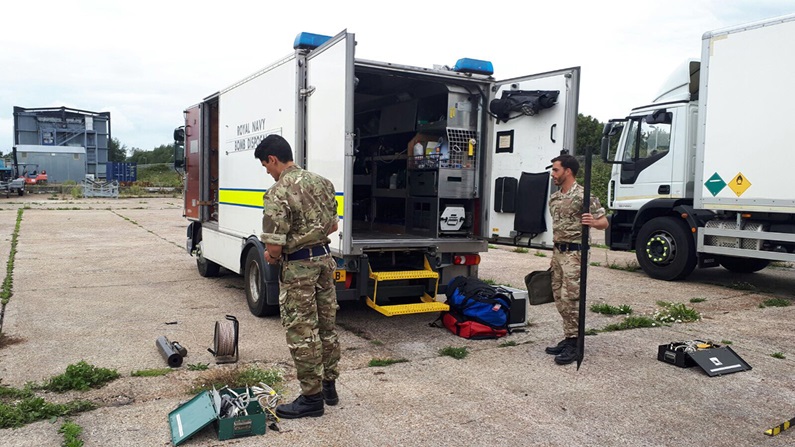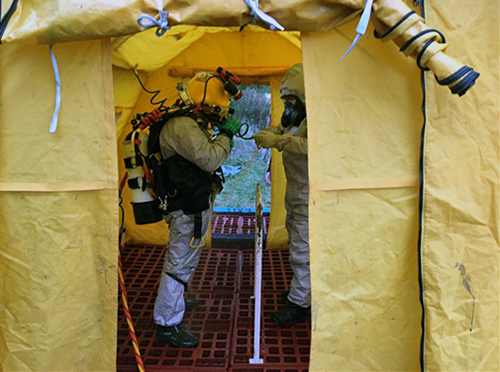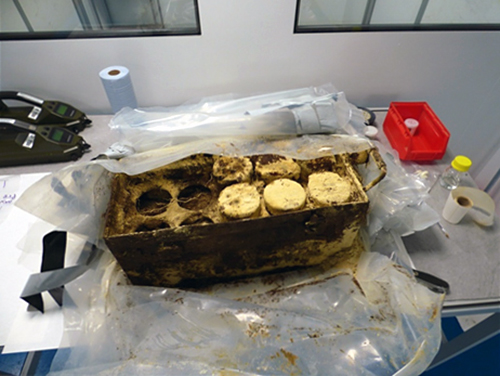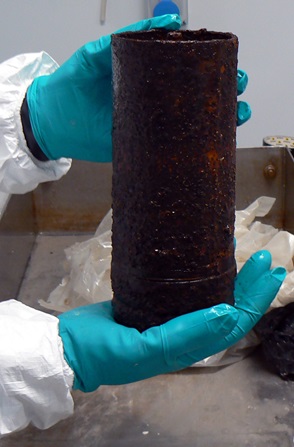Photos: Royal Navy Divers Remove Mustard Gas Bombs
Seven specialists from the Royal Navy’s Southern Diving Unit 2 spent a week outside the village of Woodhall Spa, England, to locate and remove canisters of highly toxic mustard gas.
After using sonar to map Stixwould Lake, the divers had to don chemical suits and plunge into the murky waters to recover ten six-pound chemical bombs. They spent more than three hours scouring the lake bed.
The bombs were handed over to Lincolnshire Police, who are investigating how they came to be at the beauty spot – once the site of RAF Woodhall Spa, a wartime bomber base used by the legendary Dambusters, 617 Squadron.
Today it's popular with scout troops and walkers. Two civilians found two shells containing the gas, and they suffered minor burns and respiratory problems requiring hospital treatment.



Their unlucky find prompted a massive response from the authorities. Nearly two dozen agencies were involved in all, including the Horsea Island divers, who normally deal with unexploded/unsafe ordnance in the sea or on the shore.
 "It was a bit of a mission," said Petty Officer (Diver) 'Chuck' Norris. "With reports of other people suffering from mustard agent poisoning, full bio-hazard precautions were taken – diving in a chemical environment wearing cumbersome personal protection equipment, then undergoing full decontamination at every stage. The bombs themselves were British and well over 70 years old – the UK no longer uses chemical or biological weapons."
"It was a bit of a mission," said Petty Officer (Diver) 'Chuck' Norris. "With reports of other people suffering from mustard agent poisoning, full bio-hazard precautions were taken – diving in a chemical environment wearing cumbersome personal protection equipment, then undergoing full decontamination at every stage. The bombs themselves were British and well over 70 years old – the UK no longer uses chemical or biological weapons."
Mustard gas shells were first used by the Germans 100 years ago in a bid to stop the British advance during the Third Battle of Ypres (aka Passchendaele). Despite the name, the gas has a strong smell of garlic, and its effects were not always immediate. It could burn skin badly, cause breathing problems, dreadful chemical blisters and frequently kill. The Allies also produced the gas and used it extensively during the final 12 months of World War 1.
Chemical warfare was outlawed by the Geneva Convention in 1925, but some countries, including Britain, continued to stockpile weapons such as mustard gas up to the end of World War 2. Saddam Hussein used the substance repeatedly in the Iran-Iraq war of the 1980s.
This article appears courtesy of Royal Navy News and may be found in its original form here.
The opinions expressed herein are the author's and not necessarily those of The Maritime Executive.
